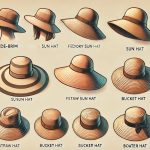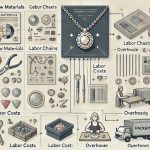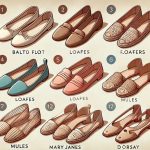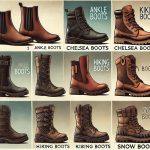Leggings are a popular and versatile garment, known for their comfort and style. They are worn for various occasions, including workouts, casual outings, and even as part of formal attire. The production of leggings involves multiple steps and materials, each contributing to the overall cost.
How Leggings are Produced
Leggings have become a popular fashion staple, worn by people of all ages for both casual wear and athletic activities. The production of leggings involves a series of processes that combine both traditional textile manufacturing techniques and modern technological advancements. The process ensures that the final product is both comfortable and durable, meeting the varying demands of the market. Below is a detailed overview of how leggings are produced, from raw material selection to the final packaging.
Raw Material Selection
Types of Fabrics
The first step in leggings production is the selection of the fabric. The most commonly used materials are synthetic fibers like polyester, spandex (also known as Lycra or elastane), and nylon. These materials are chosen for their stretchability, durability, and moisture-wicking properties. Some leggings may also be made from natural fibers like cotton or bamboo, which offer breathability and comfort, though they may lack the elasticity of synthetic fabrics.
Fabric Blending
Often, the fabric used for leggings is a blend of multiple fibers. For example, a common blend might be 90% polyester and 10% spandex. The spandex provides the necessary elasticity, while the polyester offers strength and moisture management. The blending ratio is carefully determined to achieve the desired characteristics, such as stretch, fit, and durability.
Fabric Manufacturing
Knitting and Weaving
The selected yarns are knitted or woven into fabric. Knitting is the more common technique for leggings, as it allows for greater stretch and flexibility. Circular knitting machines are often used to produce a seamless tube of fabric, which is ideal for leggings as it minimizes the number of seams, reducing potential points of discomfort and wear.
Dyeing and Finishing
After the fabric is knitted, it undergoes a dyeing process to achieve the desired color. This can be done using various dyeing methods, including piece dyeing or garment dyeing. After dyeing, the fabric is treated with finishing processes that may include softening, anti-pilling, or moisture-wicking treatments. These processes enhance the comfort, appearance, and functionality of the fabric.
Cutting and Sewing
Pattern Designing
Before the fabric can be cut, patterns are designed based on the size and style of the leggings. Patterns are created using specialized software that ensures precise measurements and fit. These patterns are then used as templates for cutting the fabric.
Fabric Cutting
The fabric is cut into pieces according to the patterns. This can be done manually or with automated cutting machines, which are faster and more accurate. The cutting process is crucial, as any mistakes can lead to waste or poor-fitting leggings.
Sewing and Assembly
Once the fabric pieces are cut, they are sewn together to form the leggings. This involves stitching the leg seams, waistband, and any additional features such as pockets or gussets. The sewing process typically uses flatlock stitching, which is strong, flat, and comfortable against the skin. This step may also involve adding elastic bands or drawstrings to the waistband for better fit and comfort.
Quality Control
Inspection
Quality control is an essential part of leggings production. After sewing, each pair of leggings is inspected for defects such as uneven stitching, fabric flaws, or incorrect sizing. This inspection can be done manually by workers or with the help of automated systems that use cameras and sensors to detect imperfections.
Testing
In addition to visual inspections, leggings may undergo various tests to ensure they meet quality standards. These tests might include stretch tests, colorfastness tests, and washing tests. The goal is to ensure that the leggings can withstand regular wear and washing without losing their shape, color, or functionality.
Final Processing
Labeling and Branding
After passing quality control, the leggings are ready for final processing. This includes adding labels, tags, and branding elements. Labels typically include information about the fabric composition, care instructions, and the brand’s logo. These labels are usually sewn into the waistband or printed directly onto the fabric.
Packaging
The final step in leggings production is packaging. The leggings are folded, packed into individual bags or boxes, and prepared for shipment. Packaging is designed to protect the product during transport and may also include branding elements to enhance the product’s presentation.
Production Cost Distribution
The production cost of leggings typically includes:
- Materials (40-50%): This includes the fabric (cotton, polyester, spandex, etc.), threads, and elastic.
- Labor (20-30%): Costs related to cutting, sewing, and assembling the leggings.
- Manufacturing Overheads (10-15%): Includes costs for machinery, factory overheads, and quality control.
- Shipping and Logistics (5-10%): Costs associated with transporting raw materials and finished products.
- Marketing and Other Costs (5-10%): Includes marketing, packaging, and administrative expenses.
Types of Leggings

1. Athletic Leggings
Overview
Athletic leggings are designed for physical activities and workouts. They are made from moisture-wicking and breathable materials to keep the wearer comfortable during exercise. Features such as high compression, four-way stretch, and reinforced seams make them ideal for various sports and fitness routines.
Popular Brands
| Brand | Established | Location |
|---|---|---|
| Lululemon | 1998 | Vancouver, Canada |
| Nike | 1964 | Beaverton, USA |
| Under Armour | 1996 | Baltimore, USA |
| Adidas | 1949 | Herzogenaurach, Germany |
| Gymshark | 2012 | Solihull, UK |
Averaged Retail Price on Amazon
- $50 – $120
Market Popularity
Athletic leggings are highly popular among fitness enthusiasts and athletes. They are a staple in activewear collections due to their functionality, comfort, and style.
Production Details
- White Label Production Cost in China: $10.00 – $20.00 per unit
- Product Weight: 200 – 300 grams
- Minimum Order Quantity: 500 units
- Major Materials: Polyester, spandex, moisture-wicking fabric, reinforced seams
2. Yoga Leggings
Overview
Yoga leggings are specifically designed for yoga practice, providing maximum flexibility and comfort. They often feature high waistbands for better support and are made from soft, breathable materials. Yoga leggings can include features like flatlock seams to reduce chafing and gussets for enhanced movement.
Popular Brands
| Brand | Established | Location |
|---|---|---|
| Lululemon | 1998 | Vancouver, Canada |
| Alo Yoga | 2007 | Los Angeles, USA |
| Manduka | 1997 | El Segundo, USA |
| Athleta | 1998 | Petaluma, USA |
| Prana | 1992 | Carlsbad, USA |
Averaged Retail Price on Amazon
- $40 – $100
Market Popularity
Yoga leggings are popular among yoga practitioners and those who seek comfortable, stylish, and functional activewear. They are favored for their soft fabrics and flexibility.
Production Details
- White Label Production Cost in China: $8.00 – $18.00 per unit
- Product Weight: 180 – 250 grams
- Minimum Order Quantity: 500 units
- Major Materials: Cotton, spandex, breathable fabrics, flatlock seams
3. Compression Leggings
Overview
Compression leggings are designed to provide support and improve blood circulation during physical activities. They are made from high-stretch materials that offer a snug fit, reducing muscle fatigue and aiding in recovery. Compression leggings are commonly used by athletes and for medical purposes.
Popular Brands
| Brand | Established | Location |
|---|---|---|
| 2XU | 2005 | Melbourne, Australia |
| Skins | 1996 | Sydney, Australia |
| Nike | 1964 | Beaverton, USA |
| Under Armour | 1996 | Baltimore, USA |
| CEP | 2007 | Bayreuth, Germany |
Averaged Retail Price on Amazon
- $60 – $150
Market Popularity
Compression leggings are popular among athletes and individuals looking for performance-enhancing gear. They are widely used in various sports and fitness routines.
Production Details
- White Label Production Cost in China: $12.00 – $25.00 per unit
- Product Weight: 200 – 300 grams
- Minimum Order Quantity: 500 units
- Major Materials: Nylon, spandex, high-stretch fabrics, reinforced seams
4. Fashion Leggings
Overview
Fashion leggings are designed to be stylish and trendy, often featuring bold prints, patterns, and unique designs. They are made from a variety of materials, including cotton, polyester, and faux leather, and are worn as part of casual or semi-formal outfits.
Popular Brands
| Brand | Established | Location |
|---|---|---|
| Spanx | 2000 | Atlanta, USA |
| Zara | 1974 | Arteixo, Spain |
| H&M | 1947 | Stockholm, Sweden |
| Forever 21 | 1984 | Los Angeles, USA |
| Urban Outfitters | 1970 | Philadelphia, USA |
Averaged Retail Price on Amazon
- $20 – $50
Market Popularity
Fashion leggings are popular among young women and those who follow fashion trends. They are often worn for casual outings and social events.
Production Details
- White Label Production Cost in China: $5.00 – $12.00 per unit
- Product Weight: 150 – 250 grams
- Minimum Order Quantity: 500 units
- Major Materials: Cotton, polyester, faux leather, elastic waistbands
5. High-Waisted Leggings
Overview
High-waisted leggings feature a waistband that sits above the natural waistline, providing better support and a flattering silhouette. They are popular for workouts and casual wear, offering comfort and style. High-waisted leggings can be made from various materials, including cotton, polyester, and spandex.
Popular Brands
| Brand | Established | Location |
|---|---|---|
| Lululemon | 1998 | Vancouver, Canada |
| Alo Yoga | 2007 | Los Angeles, USA |
| Gymshark | 2012 | Solihull, UK |
| Athleta | 1998 | Petaluma, USA |
| Spanx | 2000 | Atlanta, USA |
Averaged Retail Price on Amazon
- $40 – $90
Market Popularity
High-waisted leggings are highly popular among fitness enthusiasts and those seeking stylish and comfortable activewear. They are favored for their supportive fit and flattering design.
Production Details
- White Label Production Cost in China: $8.00 – $18.00 per unit
- Product Weight: 180 – 250 grams
- Minimum Order Quantity: 500 units
- Major Materials: Cotton, polyester, spandex, elastic waistbands
6. Seamless Leggings
Overview
Seamless leggings are made using a seamless knitting technique, resulting in a smooth and comfortable fit without any visible seams. These leggings are popular for their durability, flexibility, and sleek appearance. Seamless leggings are often used for workouts and casual wear.
Popular Brands
| Brand | Established | Location |
|---|---|---|
| Gymshark | 2012 | Solihull, UK |
| Lululemon | 1998 | Vancouver, Canada |
| Nike | 1964 | Beaverton, USA |
| Alo Yoga | 2007 | Los Angeles, USA |
| Under Armour | 1996 | Baltimore, USA |
Averaged Retail Price on Amazon
- $40 – $100
Market Popularity
Seamless leggings are highly popular among fitness enthusiasts and those looking for comfortable, high-performance activewear. They are favored for their sleek design and durability.
Production Details
- White Label Production Cost in China: $10.00 – $20.00 per unit
- Product Weight: 180 – 250 grams
- Minimum Order Quantity: 500 units
- Major Materials: Nylon, spandex, seamless knitting
7. Capri Leggings
Overview
Capri leggings are shorter in length, typically ending mid-calf. They are ideal for warmer weather and are popular for both workouts and casual wear. Capri leggings can be made from various materials, including cotton, polyester, and spandex.
Popular Brands
| Brand | Established | Location |
|---|---|---|
| Lululemon | 1998 | Vancouver, Canada |
| Athleta | 1998 | Petaluma, USA |
| Nike | 1964 | Beaverton, USA |
| Under Armour | 1996 | Baltimore, USA |
| Adidas | 1949 | Herzogenaurach, Germany |
Averaged Retail Price on Amazon
- $30 – $70
Market Popularity
Capri leggings are popular among fitness enthusiasts and those who prefer a shorter length for warmer weather. They are often worn for workouts and casual outings.
Production Details
- White Label Production Cost in China: $8.00 – $15.00 per unit
- Product Weight: 150 – 220 grams
- Minimum Order Quantity: 500 units
- Major Materials: Cotton, polyester, spandex, elastic waistbands
8. Maternity Leggings
Overview
Maternity leggings are designed to provide comfort and support for pregnant women. They feature an extended waistband that covers the belly, offering gentle support. Maternity leggings are made from soft, stretchy materials to accommodate the changing body during pregnancy.
Popular Brands
| Brand | Established | Location |
|---|---|---|
| Motherhood Maternity | 1982 | Philadelphia, USA |
| Blanqi | 2012 | Atlanta, USA |
| Ingrid & Isabel | 2003 | San Francisco, USA |
| H&M | 1947 | Stockholm, Sweden |
| Gap | 1969 | San Francisco, USA |
Averaged Retail Price on Amazon
- $30 – $80
Market Popularity
Maternity leggings are highly popular among pregnant women for their comfort and support. They are favored for their ability to accommodate the growing belly and provide a comfortable fit.
Production Details
- White Label Production Cost in China: $10.00 – $20.00 per unit
- Product Weight: 200 – 300 grams
- Minimum Order Quantity: 500 units
- Major Materials: Cotton, polyester, spandex, extended elastic waistbands
9. Leather Leggings
Overview
Leather leggings offer a stylish and edgy look, often made from faux leather or a blend of leather and spandex. They are popular for casual and semi-formal wear, providing a sleek and fashionable appearance. Leather leggings can be paired with various tops for different occasions.
Popular Brands
| Brand | Established | Location |
|---|---|---|
| Spanx | 2000 | Atlanta, USA |
| Commando | 2003 | South Burlington, USA |
| Blank NYC | 2007 | New York, USA |
| Topshop | 1964 | London, UK |
| Zara | 1974 | Arteixo, Spain |
Averaged Retail Price on Amazon
- $50 – $120
Market Popularity
Leather leggings are popular among fashion-forward individuals who appreciate their sleek and stylish look. They are often worn for nights out and social events.
Production Details
- White Label Production Cost in China: $15.00 – $30.00 per unit
- Product Weight: 250 – 350 grams
- Minimum Order Quantity: 500 units
- Major Materials: Faux leather, spandex, elastic waistbands








